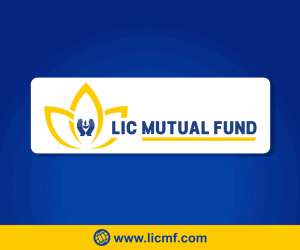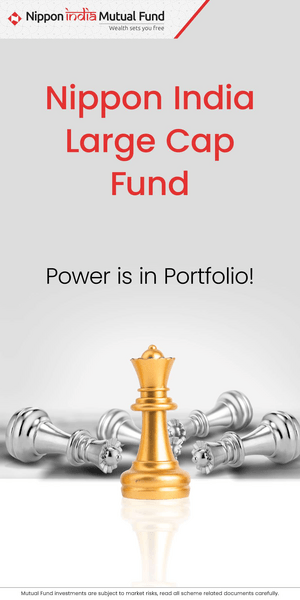Market valuations have come down and coming closer to long term averages
BFSI Industry Interview

Mr. George Heber Joseph joined ITI Asset Management Ltd. in November, 2018 and is responsible for the entire business of ITI Asset Management Ltd.
George has around two decades of experience and has held positions in Equity Research, Fund Management, Treasury Management and Management Consulting. Prior to joining ITI Asset Management Ltd., he has worked in companies like ICICI Prudential Asset Management Ltd., Tanfac Industries Ltd. (Aditya Birla Group), Cholamandalam Investments & Finance Co. Ltd., Met Life India, Wipro and DSP Merrill Lynch Ltd. based in India and abroad.
His last stint was at ICICI Prudential Asset Management Co. Ltd. Mumbai, where he spent more than a decade managing some of the large flagship fund strategies in the equity and hybrid categories with assets under management exceeding Rs. 10,000 crores. All funds (Multicap, ELSS – Long Term Equity Fund, Child Care) and discretionary portfolios (Wellness, Exports, Flexicap, Largecap, PIPE/Smallcap) managed by him during this entire period were excellent performers in their respective categories. There, he was designated as Senior Fund Manager (Vice President Grade) based in Mumbai, India and was one of the Key Management Personnel in the company and was part of the investment management team.
He is known for his focus on extensive bottom-up research and stock picking capabilities, has overseen fund managers activities, managed various research analysts during his tenure.
George holds dual Bachelor’s Degrees in English Language & Literature and Commerce. He is a qualified Chartered Accountant from Institute of Chartered Accountants of India, New Delhi and a Cost and Management Accountant from Institute of Cost Accountants of India, Kolkata.
The broader market has been quite volatile for nearly 18 to 20 months now. Over the last 3 months, even the frontline indices like Nifty and Sensex have seen a fair bit of correction. What is your assessment of the stock market at this point of time?
The last two months have been quite difficult for equity markets and investors. Economic data / news are weak, share prices have fallen with larger fall in the mid cap space, quarterly results were weak and management commentary is not very promising. However, there are many positives that are emerging. First of all, market valuations have come down and coming closer to long term averages. Gap between earnings yield (Inverse of P/E ratio) and 10 year G-Sec yield reduced substantially.Liquidity situation in the economy has improved, interest rates are coming down and oil prices are stable. In fact, many sectors and stocks are trading below their long term average valuations, which is a conducive to bottom up stock picking. So we have a much more constructive approach on the markets now than we were three months ago, when we launched our ITI Multi cap Fund.
Our GDP growth in Q1 has declined sharply on a quarter on quarter basis. IIP growth in July was down on a year on year basis. Several industry sectors are under severe stress. What is your view on economic slowdown that we are seeing now and your medium to long term (3 years) outlook?
We feel the Indian economy’s current slowdown is more cyclical in nature, and is the result of several factors coming together at the same time. Several reform measures such as GST, RERA, and demonetisation have disrupted the way business was traditionally done and the resultant adjustment process has reduced activity levels in many sectors. Also, the slowdown in government spending in 2HFY19 and the first three months of current fiscal, weak agricultural commodity prices that have impacted spending power in rural India and the drying up of liquidity in the wake of defaults by some large NBFCs have all affected economic growth. None of these are structural factors. The disrupted business models are gradually adjusting to the new regulatory scenario, liquidity has improved significantly and government spending is coming back. India’s underlying economic structure remains sound and we expect that GDP growth will improve in the next 12-18 months.
There are discussions on fears of global recession in the media, particularly concerns about economic slowdown in the United States. For the sake of retail investors among Advisorkhoj readers, please share with us your assessment of the global risk factor and how it may affect Indian equities?
At this juncture, global growth outlook is not very strong. Growth outlook for Europe, which is a large economic block, is weak. Trade wars, growing tariff protection and geopolitical issues are impacting global growth. In today’s world, no country can stay immune to a global slowdown. However, India with large domestic oriented economy with lower dependence on exports and commodity price cycle is relatively insulated from global slowdown as compared to most other emerging markets.
What are your views on some of the policy announcements made by the finance minister recently e.g. rollback of surcharge on FPIs and domestic investors, capitalization and merger of PSU banks, measures for the automobile sectors etc?
The measures announced by the Finance Minister recently clearly send out the message that the government is keen on reviving the economic growth. The measures such as faster recapitalisation of PSU banks, measures to ensure that rate cuts by RBI are passed through to the broader economy, improving working capital position of MSMEs through faster GST refunds and release of payments by Government organisations, support to NBFCs/ HFCsetc, should improve economic growth on a sustainable manner.
What is your investment strategy for ITI Multi-cap Fund and your ELSS NFO, ITI Long Term Equity Fund? In which sectors do you see attractive investment opportunities as far as your equity schemes are concerned? Please discuss your views on relative valuations of different market cap segments, particularly midcap and small cap in relation to your investment strategy, if any?
All our equity funds follow the SQL investment philosophy which focusses on S = margin of Safety, Q = Quality of the business and L = low leverage. At least 80% of the equity investments are in ‘core’ set of stocks ie. companies are strong and sustainable businesses with competitive advantages in their respective field. Tactical bets ie companies with significant upside potential but going through temporary problems and at the same time trading at beaten down prices can be taken upto 20% of the portfolio. We are currently overweight on auto, construction and industrials, pharma and consumer sectors. We feel the cyclical slowdown and attractive valuations present a good opportunity in auto sector. Consumer is again a structural growth sector with high quality companies. We expect an uptick in capex, particularly from government sector to benefit construction sectors. In pharma, domestic business continues to remain strong and US generics business is showing signs of coming out of a downturn.
Our call of preferring large caps over mid and small caps, even after the general elections in May 2019, has paid off. With the correction in markets, we have gradually increased our mid and small cap exposure from 15% at end of May 2019 to about 25% now, by adding some mid and small cap stocks that are looking attractive. However, we still do not feel that it is time to add midcaps aggressively.
One of the main concerns for fixed income investors for the past 12 months or so is credit risk. For the benefit of retail investors among our readers, please describe your credit risk management process for your debt scheme, i.e. ITI Liquid Fund?
Our SQL philosophy for debt funds focuses on Safety, Quality and Liquidity. We lay highest importance on credit quality of the issuers and have stringent internal guidelines on credit evaluation that do not merely rely on external credit ratings. The focus of credit analysis is to understand the inherent business risk, and management quality of the issuer. The credit research team also takes inputs from equity research.
You recently launched two NFOs, ITI Long Term Equity Fund (ELSS) and ITI Arbitrage Fund. Do you have plans of product launches in your pipeline?
We are planning to launch a balanced advantage fund that will dynamically allocate between debt and equity, using our in house methodology that focuses on market valuation, stages of business cycle and earnings growth.
What is your advice to retail investors who want to invest in mutual funds for their long term financial goals in this environment of uncertainty?
Worrying is the easiest thing to do in the current environment. However, Investors need to remember that India’s long-term growth outlook continues to remain strong. Many sectors/stocks are now available below long-term averages, increasing the opportunities for bottom up stock picking. Interest rates are low, monsoon has improved, oil prices are stable and valuations look interesting. Markets just need some catalyst to improve confidence. We feel investors should use the current volatility to systematically increase equity exposure with a three year plus time horizon.
Our view is that, be confident, patient, think long term and start increasing allocations to equities systematically and especially multi cap funds could be the best option to handle this kind of situations.
Mutual Fund Investments are subject to market risk, read all scheme related documents carefully.
Recent Interviews
-
In conversation with Mr Vaibhav Shah Head Products: Business Strategy & International Business Mirae Asset Mutual Fund India
Apr 18, 2025
-
In conversation with Mr Kaustubh Sule Senior Fund Manager Fixed Income with Groww Mutual Fund
Apr 18, 2025
-
In conversation with Mr Abhishek Tiwari Chief Business Officer of PGIM India Mutual Fund
Apr 5, 2025
-
In Conversation with Mr Akhil Chaturvedi Executive Director & Chief Business Officer with Motilal Oswal Mutual Fund
Mar 26, 2025
-
In conversation with Mr Rohit Seksaria Fund Manager Equity with Sundaram Mutual Fund
Mar 7, 2025
Fund News
-
Axis Mutual Fund joins ONDC Network to Expand Access to Mutual Fund Investments
Apr 18, 2025 by Axis Mutual Fund
-
Nippon India Mutual Fund launches Nippon India Nifty 500 Quality 50 Index Fund
Apr 18, 2025 by Advisorkhoj Team
-
Nippon India Mutual Fund launches Nippon India Nifty 500 Low Volatility 50 Index Fund
Apr 18, 2025 by Advisorkhoj Team
-
RBI Monetary Policy: RBI changes policy stance and lowers rate
Apr 9, 2025 by Axis Mutual Fund
-
Kotak Mahindra Mutual Fund launches Kotak Nifty Top 10 Equal Weight Index Fund
Apr 7, 2025 by Advisorkhoj Team




